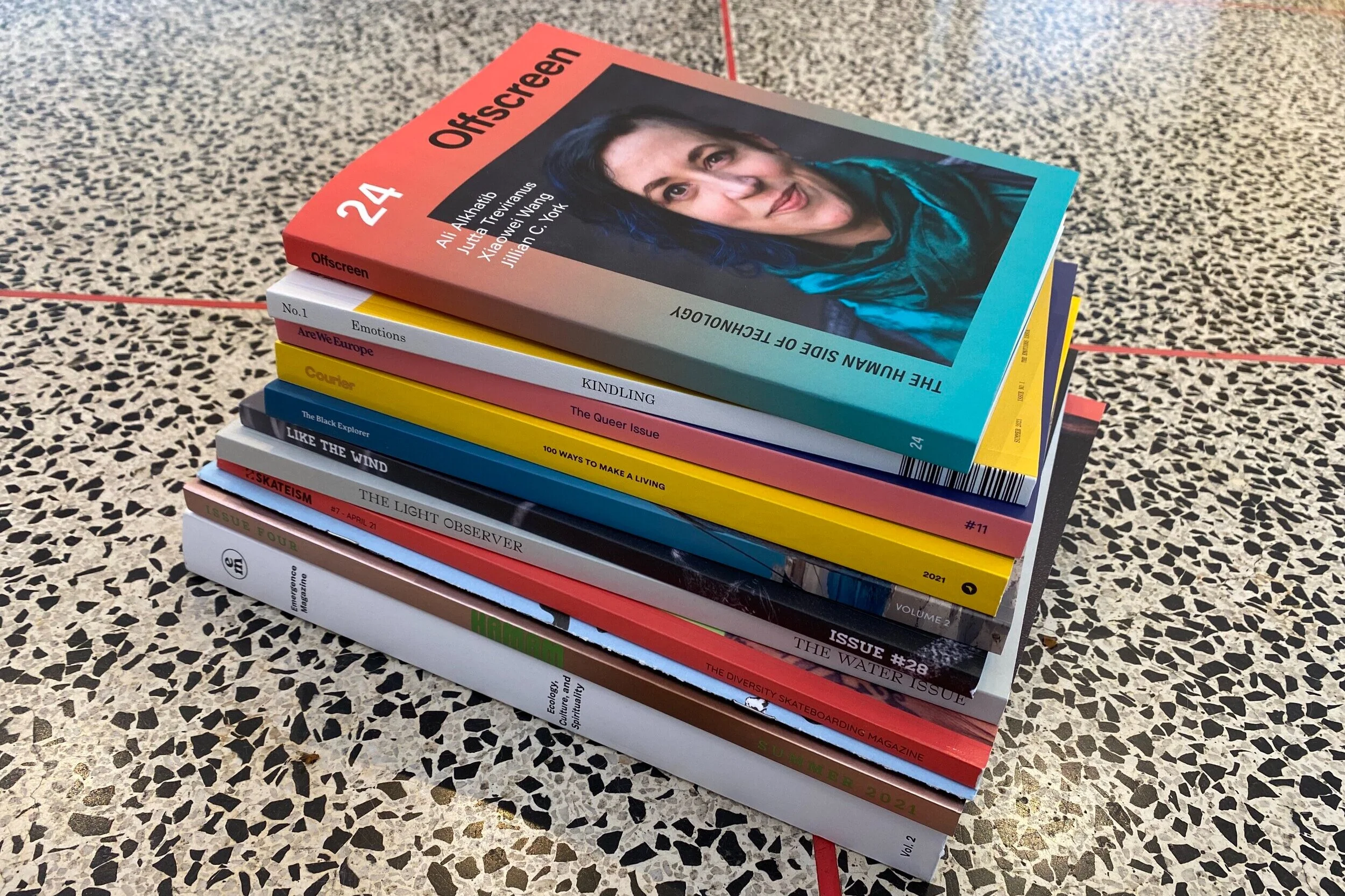The push and pull of the sea
Wild and calm. Chaotic and beautiful. Bold and soft.
The sea has its contradictions. And, for as long as I can remember, I have been drawn to the push and pull of it.
From embracing the joys of wild swimming and overcoming panic while scuba diving to my rehabilitation through water therapy and evenings spent watching sunsets over the ocean, blue spaces have helped me heal and grow.
In many ways, the sea is a metaphor for our own life experiences; the ups and downs and ebbs and flows. At its most tranquil, it can relax and restore us. At its most violent, we can lose ourselves in its grip.
What I love most about water is its capacity to shift us into a more mindful state. It can lower stress, decrease anxiety and relieve depression. And as well as settling our thoughts and lifting our moods, it can bring us back to the here and now — help us feel grounded and present — and sharpen our senses.
The sea has always been a kind of therapy for me, and I have felt the emotional, mental and physical benefits first-hand. My mind can be elsewhere — ruminating over the past, worrying about the future — but as soon as my feet touch the wet sand and the waves reach my bare toes, I am right where I need to be. At these points, I feel alone in the most reassuringly positive way, and the solitude it brings allows curiosity and creativity to thrive. It is almost elevating.
Above: Luskentyre Beach at Sunset, Isle of Harris, Scotland by Nils Leonhardt | Top: Golden Hour at Luskentyre Beach, Isle of Harris, Scotland by Nils Leonhardt
In his book, Blue Mind: How Water Makes You Happier, More Connected and Better at What You Do, Wallace. J. Nichols, a marine biologist, investigates how water — literally and metaphorically — helps us move into a flow state. He coined this the "blue mind". Nichols examines why we are attracted to lakes, rivers, oceans and pools and why being near water sets our minds and bodies at ease. He illustrates the importance of our water connection — its almost magical quality — with the science behind it and the ways in which it allows our thoughts to wander freely. Is it any wonder then that some of the greatest artists, musicians and writers have been moved by the sea? Or why so many of us are called there to explore ideas or seize inspiration? If you’re looking for an a-ha moment, maybe the coast is calling you too.
Something else I cherish is that feeling of awe. The sense that we are a part of something vast, far bigger than ourselves, that connects all of us. So perhaps it is no coincidence, then, that we are also drawn to the sea to celebrate death as well as life.
My dad, who passed 30 years ago, was from Stornoway on the Isle of Lewis. Throughout my life, I had always felt this tug to travel to the Outer Hebrides, and when I first visited almost 10 years ago, it was the beginning of my love affair with the islands. We camped by beaches most nights and I don't think I've ever felt so wild and free. We were at one with the elements and upon visiting the Isle of Harris, which is connected to Lewis, I felt so at home. The coast captured my heart; I have never been anywhere else quite like it. The trip brought me a feeling of togetherness, even with someone who was no longer with me.
I believe this sense of connection is why, in the months following the loss of my son during pregnancy in June 2016, I found my visits to the sea so comforting. When we travelled that year, some days I would swim out into the ocean and edge as far out as I could go, always a little further than was comfortable, because at my most empty I could feel exactly what I needed to feel and be wholly and fully me. I could give every thought its turn to surface and release. It was painful but it was freeing, in a way. And while I couldn't bring my son back, I could somehow bring him closer to me.
Luskentyre Beach, Isle of Harris, Scotland by Nils Leonhardt
Water, in this sense, has been essential for my healing. It shifts and shapes the land, and I believe in its ability to shift and shape us too. It certainly gave me the time and space to evaluate how I live my life and do my work. And it hit the reset button on my relationship and my business and truly started the healing process. It's what encouraged me to make some radical changes.
Being by the sea makes me feel small — in the best possible way — as though I am a part of something bigger. It’s where my troubles drift away and I find connection again. This awareness draws me back to the sea most weeks. On the bad days, when my anxiety and depression have the upper hand, it brings me solace and stillness. I can sit with my emotions, filter out the noise, and bring my awareness back to what supports me. On the good days, I can cultivate more of that good stuff, which I sometimes feel inspired to share, a lot like these words.
Water has been the antidote to my messy middle. And it has brought me closer to those I love, to those I miss and, perhaps most importantly, to myself. It is why I will always return to the sea; my safe place, where I can remember and celebrate, and where I can feel at my most alive.
Salt Marches, Isle of Harris, Scotland by Nils Leonhardt









